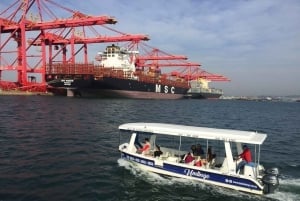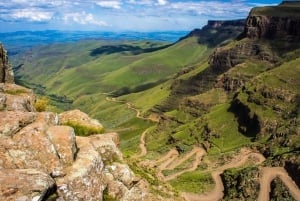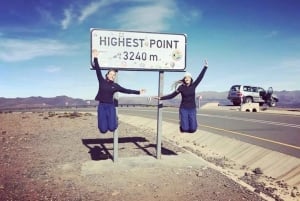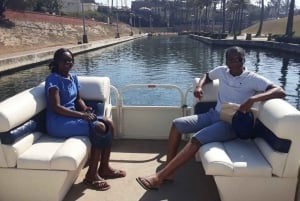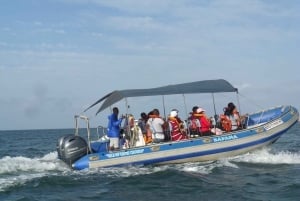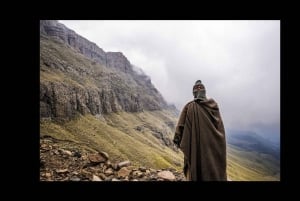Useful Information
The area which is now KwaZulu Natal held little interest for early European explorers. It was only in 1824 that the Cape colonist, Henry Fynn, secured an agreement with Shaka, mighty King of the Zulu nation, to establish a trading station at what was initially called Port Natal. Later renamed Durban after the Governor of the Cape Colony at the time, the fledgling settlement faced an uncertain future. In 1837 the Voortrekkers, descendants of the Dutch settlers from the Cape Colony, arrived in Natal. After several bloody encounters with the Zulu King, Dingaan’s armies, the Voortrekkers defeated the Zulu’s at the Battle of Blood River and annexed Natal as a Republic. But the British reclaimed Natal from the Voortrekkers in 1843 and Natal became a British colony.
After this followed a long period of stability. Many settlers arrived from Europe and the Cape Colony. Durban transformed into one of the most important seaports in the British Empire. Sugarcane became "white gold" in the Province, with huge fortunes made by sugar barons of the day. Because of the difficulties in securing Zulu labour to work the estates, thousands of indentured Indian labourers were brought from India to work the fields.
In 1910, Natal became part of the union of South Africa, and in 1961, under the jurisdiction of the apartheid government, a Province of the Republic of South Africa. During the apartheid era an attempt was made to relegate the Zulu population to the KwaZulu bantusan. But after the advent of democracy in 1994, a negotiated settlement united Natal and KwaZulu into the modern day Province of KwaZulu Natal.
Although never the capital of the province, Durban – also known by the Zulu name eThekwini – is by far the largest city. Today, almost four million people live in the metropole, which is the second largest city in South Africa. An ethnic melting pot, it has the largest Indian population outside of Indian and Pakistan.
Durban has an irresistible, vibrant, eclectic allure, and a mystique which is a reflection of its extraordinary cultural diversity and heritage. As the largest city in the Zulu Kingdom, it has a warm, exotic African feel to it, somehow counter-balanced by its British colonial heritage and the infusion of the eastern influence of its large Indian population. Truly a city where east meets west – sophisticated and cosmopolitan, yet with a laid-back style found nowhere else in South Africa.
With an all year round warm, balmy, subtropical climate, Durban in a holiday mecca. Durban’s endless golden beaches are one of its selling points. Often referred to as an African Miami, world class hotels, resorts and apartment buildings line the beachfront, with miles of safe swimming beaches favored by surfers, divers, canoeists and anglers. Stroll along the promenade; enjoy the beachfront stall selling traditional arts and crafts. Perhaps have a ride on one of Durban’s famous Zulu rickshaws, or have coffee or a sundowner at one of the many pubs, cafes or restaurants, enjoying a beautiful view of the Indian Ocean.
But Durban has far more than a beach culture. Leisure facilities abound. Shop until you drop at Umhlanga’s Gateway Shopping Centre, the largest shopping centre of its kind in the southern hemisphere. Spend hours enjoying uShaka Marine World at the Point Waterfront. Take in Durban’s cosmopolitan nightlife and live music. And for the adventurous, take a chance at the Sibaya or Suncoast casinos. If its peace and beauty you are after, head for one of Durban’s nature sanctuaries or parks. And on one of those inevitable rainy days, take in the wonders of the local history and natural science museums, or enjoy live theatre at The Playhouse in the city centre.
Seemingly trying to cater for every possible taste, Durban always succeeds at what it does best. Giving you the holiday you deserve. The holiday of a lifetime.


